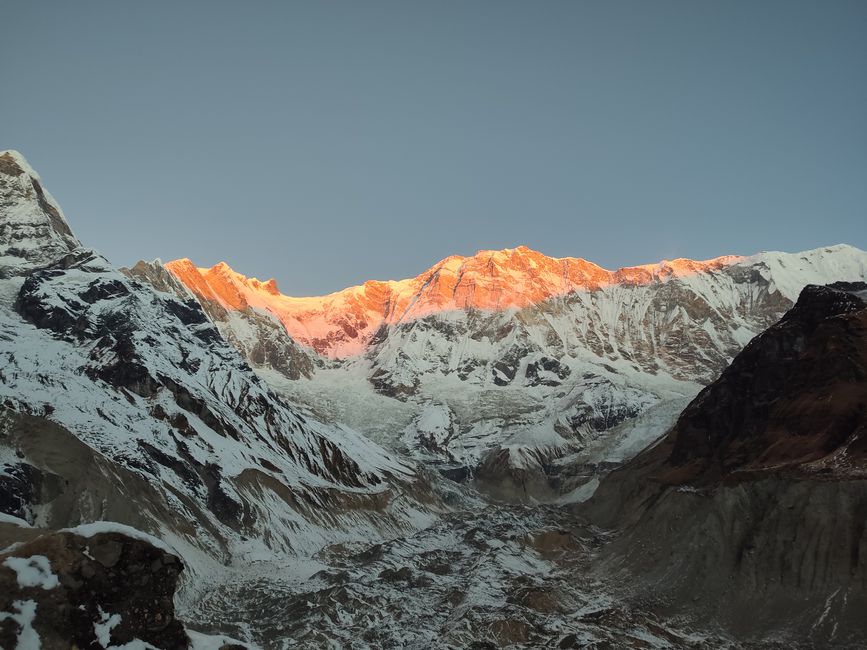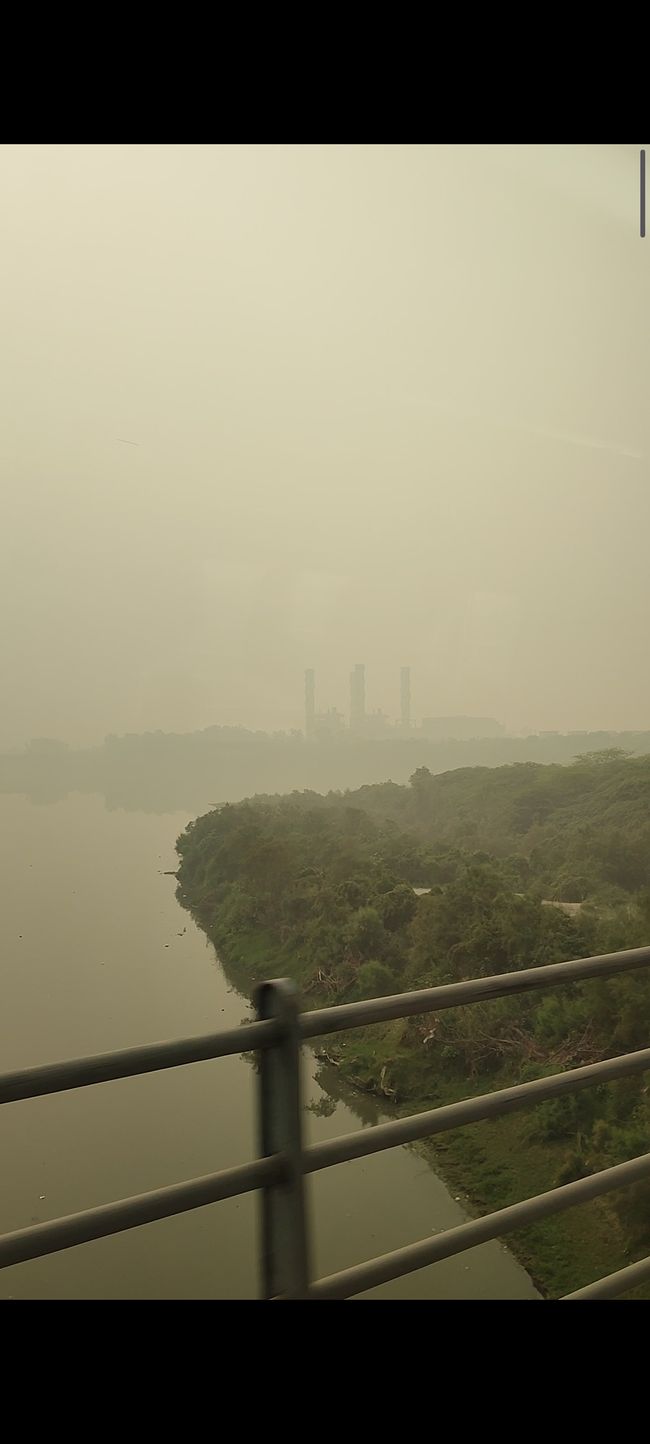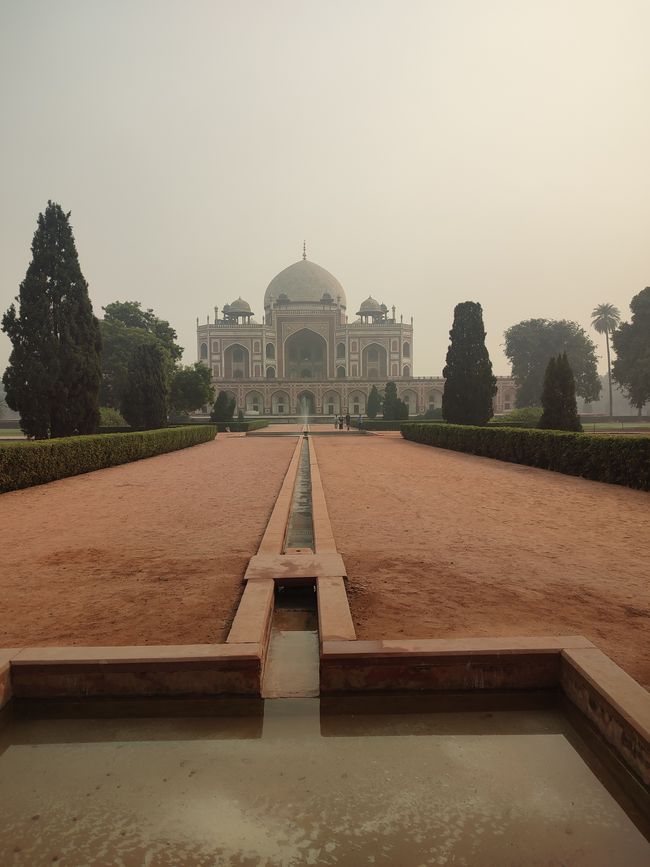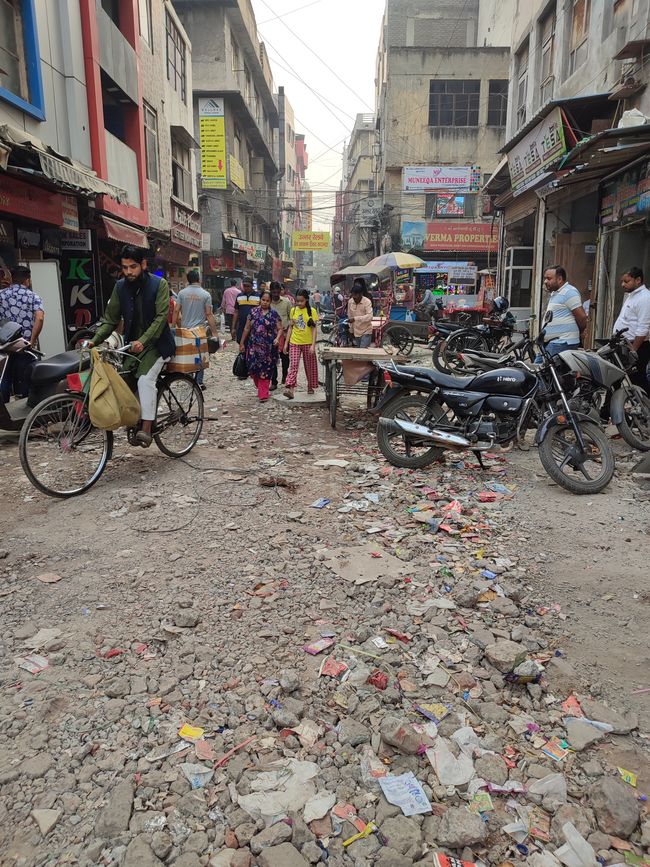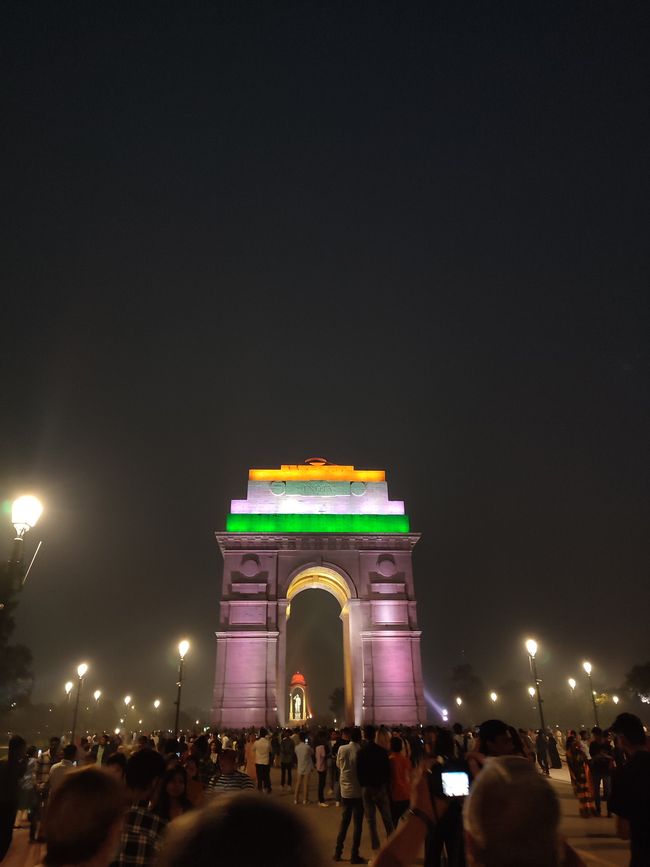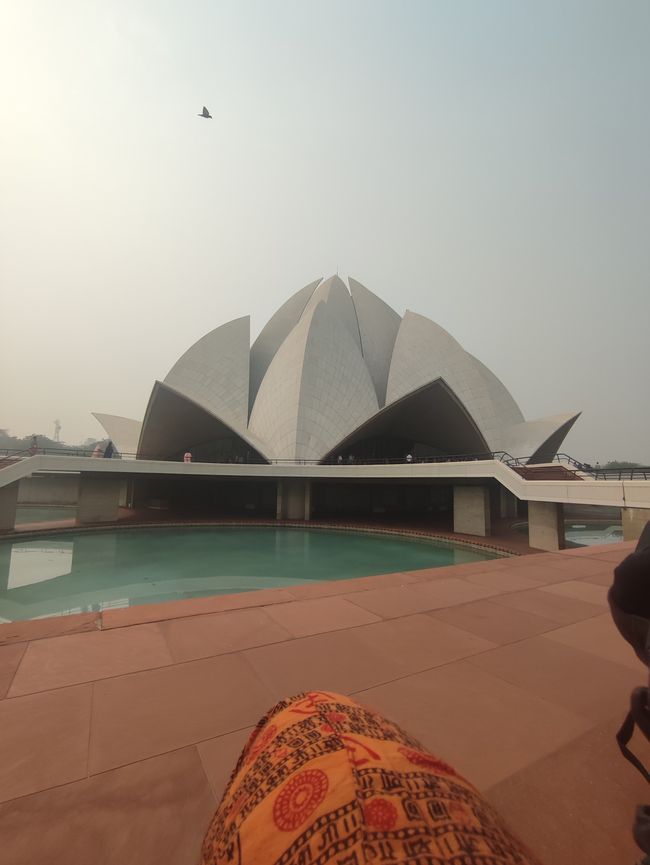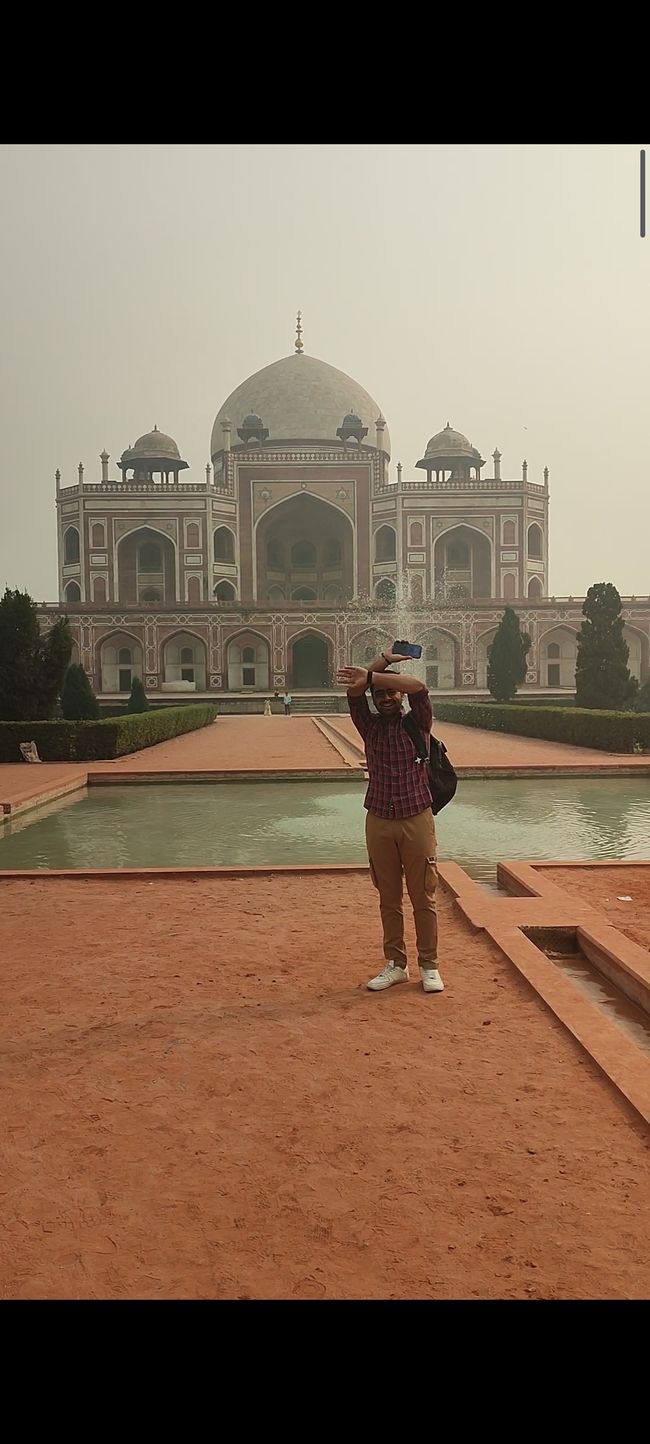Delhi - If
Wotae: 13.11.2023
Wɔ Nudɔdɔ na Nyadzɔdzɔgbalẽ
It's slowly coming to a standstill. Nobody moves and everyone looks intently at the closed door. In the distance you can hear a baby crying and someone else having a heated business conversation while a beeping sound drowns out the remaining voices. The door opens slowly and before it is even half open, people are pushing through it as if death itself is waiting for them behind them. I, too, groggily head towards the door and try not to get crushed. Even before I cross the threshold I see a cloud of smoke coming out of nowhere in front of me, no! Rather, it comes from everywhere and elegantly winds its way through the door into the interior, against the crowd. At the same moment I feel the air change from a liquid state to a viscous one and I find it harder to get oxygen, not much, but enough to register. After I perceived the change visually and via my autonomic nervous system, the olfactory experience took place, through a smell that was reminiscent of burnt plastic and rubber, dirt, exhaust fumes and expired food.
And this is what my welcome to Delhi looked like. The air pollution at this time was 25 times that of Cologne and was the equivalent of two cigarettes per day. Air pollution in Delhi reaches its highest level in mid to late November because, firstly, the largest Hindu festival, Diwali, takes place on November 12th and therefore an incredible number of people arrive, the traffic becomes even more chaotic and firecrackers and rockets are set off (the latter of which is now was banned) and secondly, the farmers in the regions set fire to their fields to make the soil more fertile and all the warm smoke, in relation to the normal air, drifts towards the high plateau on which Delhi lies. I woke up with a sore throat that subsided throughout the day and coughed as if it was only a matter of time before my tuberculosis took me away. I suddenly had to start sneezing and blowing my nose again, leaving an indefinable black mass in my handkerchief, of which I didn't even want to know how much of it my nose hairs couldn't catch.
My tiredness and fatigue continued here and my desire to socialize was at a low. But since I knew that contact with others would be good for me, I arranged to meet Aman, the Indian who I met in Goa and who offered to show me around Delhi. We had two fun days with lots of food and some sightseeing, although I didn't feel good because he tried so hard to tell and show me a lot, but my attention span and energy level were almost zero. Two experiences further increased my longing for the remote villages of the Indian Himalayas, to which I will travel to Delhi. For one thing, a group of little boys in a former slum gave me the middle finger, shouted "f*ck you" at me, held me tight and even fasted in my face. Less than two hours later, a homeless mother threw a cup of water at me because I didn't give her money. These two situations brought me close to tears, not because I felt so excessively mistreated, which was objectively the case, but because the desperation and resulting morally reprehensible actions of these people were provoked by such extreme poverty , which seems so incredibly unfair. Nevertheless, such behavior should of course not be tolerated in any way, but the question of where personal responsibility begins and what the consequences of poverty are should still be asked. It's just like the moment I gave a homeless person something to eat instead of money, even though he asked for money. He took the fried rice and threw it at my feet. I was totally perplexed and thought to myself how someone in his situation could allow something like that and that it was disrespectful. But if you then think about the fact that people like him are pushed through everyday life because of their poverty and cannot really decide any action freely, then for him the only free decision he can make is what he accepts and what he doesn't . And if he then asks for something, but gets something else and is therefore deprived of the last free decision he has, then it is not rational to deny it, but it is immensely important to preserve the last drop of freedom you have left remains.
Here in India, I particularly notice three aspects that lead to widespread poverty and unequal treatment in society. On the one hand, there is traditional Hinduism with its caste system and arranged marriages. Although India is officially a secular state, Hindu nationalism is still playing an increasingly larger role in everyday life and politics. In addition, for many people, religion still has greater importance than social equality or progress. Not only does it dominate the everyday lives of many, but it also influences almost all other decisions, even if they have nothing to do with religion. The second cause that stands out to me is the education system. There is no obligation, education is sometimes very difficult to obtain, the information is outdated, biased or not relevant and there is a lack of awareness about the consequences of a lack of education.
And last but not least, a consciously unequal social safety system is missing. It may sound paradoxical at first if you want to achieve equality through a system that deliberately treats people unequally. But what this means is a system that gives people who are temporarily absent from professional and/or social life the opportunity to recover and enable them to return to everyday working life. People can become temporarily unable to work due to divorce, death of relatives, accidents, psychological problems, etc. more easily than you think. But if you then give these people state money, such as: B. Citizens' money in Germany helps them stay afloat during this difficult period. If you were to leave all these people completely alone, according to the motto: make your own luck, then you would lose so many people to poverty, which is not only a stroke of fate for the individual, but also gradually for the entire society becomes a big problem.
Perhaps these are three requirements for an equal society:
1. A fundamental body of thought that does not arise from religion, but is based on equality and freedom. (In order to achieve this, requirement number 2 may be necessary first.)
2. Free access to quality education for all.
3. A deliberately unequal social system, in terms of a safety net and tax payment.
There are days when I don't particularly feel like writing my entries, have the time or focus, and the fact that I'm typing all these testimonials on my phone doesn't make it any easier. I'll have to see how I'll handle it in the future. Maybe I'll skip time intervals or not go into them in detail because I don't find them to be as significant or worth telling (like most of Delhi or Jaipur).
Have a wonderful day, whoever is reading this (◕ᴗ◕✿)
Wɔ Nudɔdɔ na Nyadzɔdzɔgbalẽ
Ŋuɖoɖo
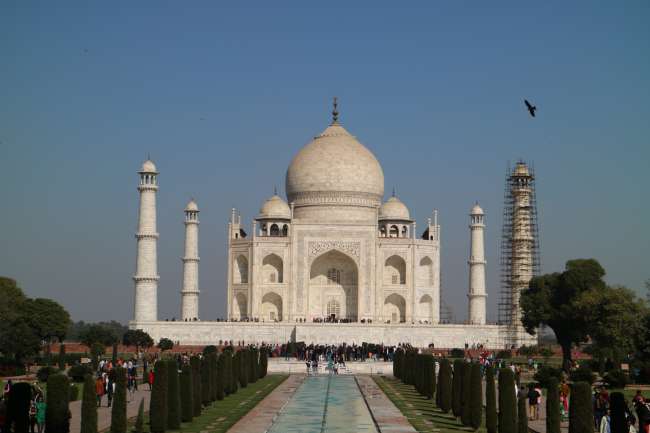
Mɔzɔzɔ ŋuti nyatakakawo India

